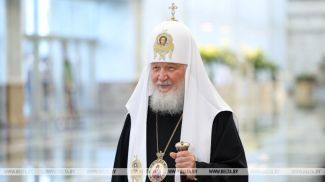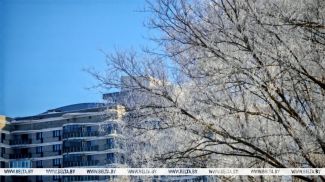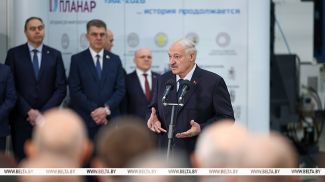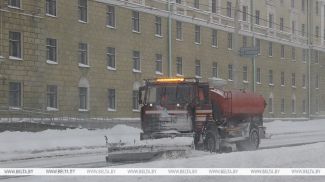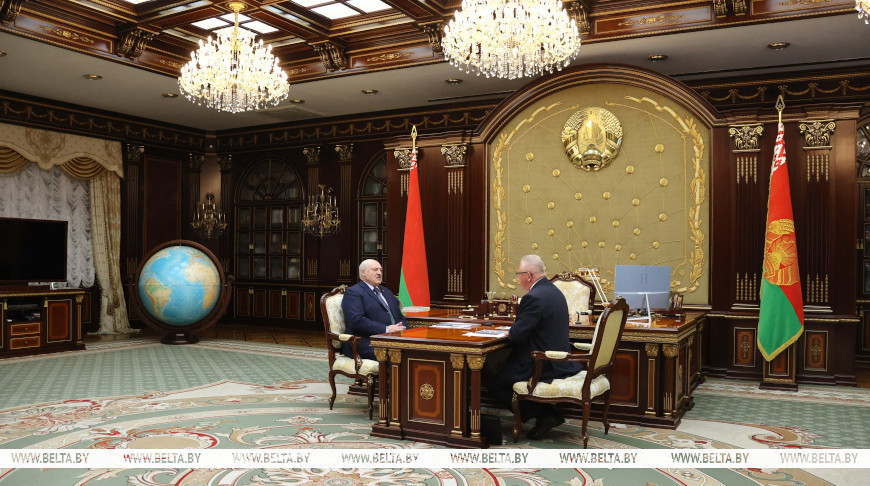
MINSK, 11 June (BelTA) – We must ensure an impeccable organization of the presidential election in Belarus in 2025, Belarusian President, Chairman of the Belarusian People's Congress Aleksandr Lukashenko said as he met with Chairman of the Central Election Commission of Belarus Igor Karpenko to receive his report on 11 June, BelTA has learned.
“If we take a retrospective look from the past elections [the single voting day in February 2024] to the election we are going to hold [presidential election in 2025], we are in the middle of the electoral cycle. We are proceeding from one election campaign to another. The time is complicated. We have passed half of the way quite successfully. May God we do well at the coming electoral campaign,” the head of state said.
He suggested discussing some details in the organization of the upcoming election, including the issues related to the invitation of international observers and voter outreach activities. As for the date of the presidential election, the relevant decision will be made by the parliament, but the campaign should be held no later than 20 July 2025.”
“I am ready to discuss any issues related to the upcoming presidential election. I do not think there will any problems with decision-making on other issues. We must ensure an impeccable organization of the upcoming election campaign. There is no need for us (as it was in previous years) to pressurize, to use administrative resources. We are capable of holding these elections in the most honest and decent manner,” the Belarusian leader said.
“We need to ensure a proper organization of the presidential election. We must by no means offend our people. This is the main thing. The election is for the people, for the state,” Aleksandr Lukashenko said.
In this regard, the head of state mentioned the recent “elections” held by the self-exiled opposition, noting the inconsistency of their approaches in assessing the actions of the Belarusian authorities and their own: “Only 6,000 out of almost 7 million voters took part [in the voting]. They have no problems with that. They consider themselves elected. They have elected a ‘parliament’ and embarked on a journey around all types of cities and towns begging for money. After all, this is their life. There is no need to draw parallels here. I am just saying that they used to accuse the authorities of behaving dishonestly, of using administrative resources. What do they call their actions now?”
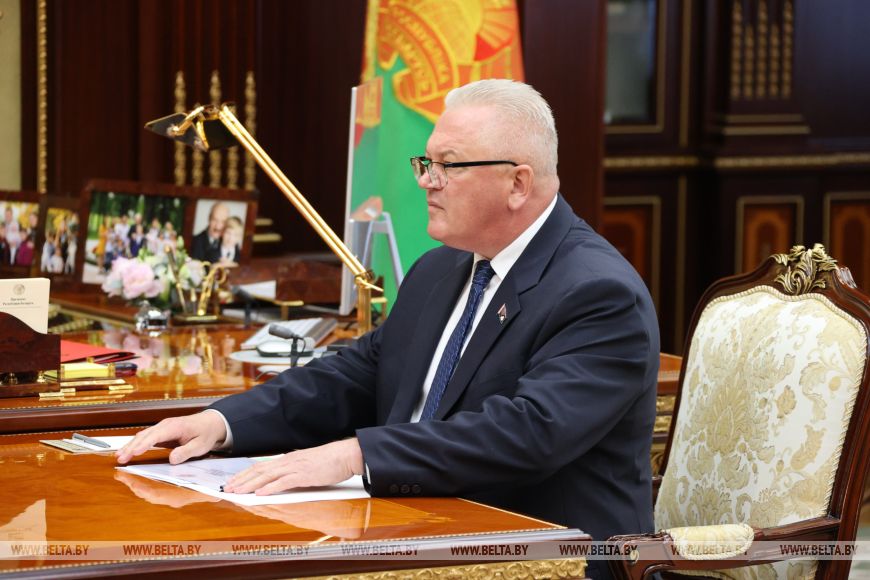
The current legislation stipulates the function of the Central Election Commission to raise legal awareness in communities. Aleksandr Lukashenko added that he had examined the recently published books for children, which provide the basics of the Constitution and elections in a simple language. “Well done,” the Belarusian leader assessed the books.
Igor Karpenko reported that a so-called error correction was conducted following the single voting day and a relevant meeting was held. “Everything will have been corrected by the next single voting day. I can say with confidence that we do not need to change the electoral legislation for the upcoming presidential election. It has been tested on the recent single voting day. There were some nuances, but they were all related to the uniformity of application [of certain norms]. These are purely procedural issues that we have regulated,” he said.
“If we take a retrospective look from the past elections [the single voting day in February 2024] to the election we are going to hold [presidential election in 2025], we are in the middle of the electoral cycle. We are proceeding from one election campaign to another. The time is complicated. We have passed half of the way quite successfully. May God we do well at the coming electoral campaign,” the head of state said.
He suggested discussing some details in the organization of the upcoming election, including the issues related to the invitation of international observers and voter outreach activities. As for the date of the presidential election, the relevant decision will be made by the parliament, but the campaign should be held no later than 20 July 2025.”
“I am ready to discuss any issues related to the upcoming presidential election. I do not think there will any problems with decision-making on other issues. We must ensure an impeccable organization of the upcoming election campaign. There is no need for us (as it was in previous years) to pressurize, to use administrative resources. We are capable of holding these elections in the most honest and decent manner,” the Belarusian leader said.
“We need to ensure a proper organization of the presidential election. We must by no means offend our people. This is the main thing. The election is for the people, for the state,” Aleksandr Lukashenko said.
In this regard, the head of state mentioned the recent “elections” held by the self-exiled opposition, noting the inconsistency of their approaches in assessing the actions of the Belarusian authorities and their own: “Only 6,000 out of almost 7 million voters took part [in the voting]. They have no problems with that. They consider themselves elected. They have elected a ‘parliament’ and embarked on a journey around all types of cities and towns begging for money. After all, this is their life. There is no need to draw parallels here. I am just saying that they used to accuse the authorities of behaving dishonestly, of using administrative resources. What do they call their actions now?”

The current legislation stipulates the function of the Central Election Commission to raise legal awareness in communities. Aleksandr Lukashenko added that he had examined the recently published books for children, which provide the basics of the Constitution and elections in a simple language. “Well done,” the Belarusian leader assessed the books.
Igor Karpenko reported that a so-called error correction was conducted following the single voting day and a relevant meeting was held. “Everything will have been corrected by the next single voting day. I can say with confidence that we do not need to change the electoral legislation for the upcoming presidential election. It has been tested on the recent single voting day. There were some nuances, but they were all related to the uniformity of application [of certain norms]. These are purely procedural issues that we have regulated,” he said.




